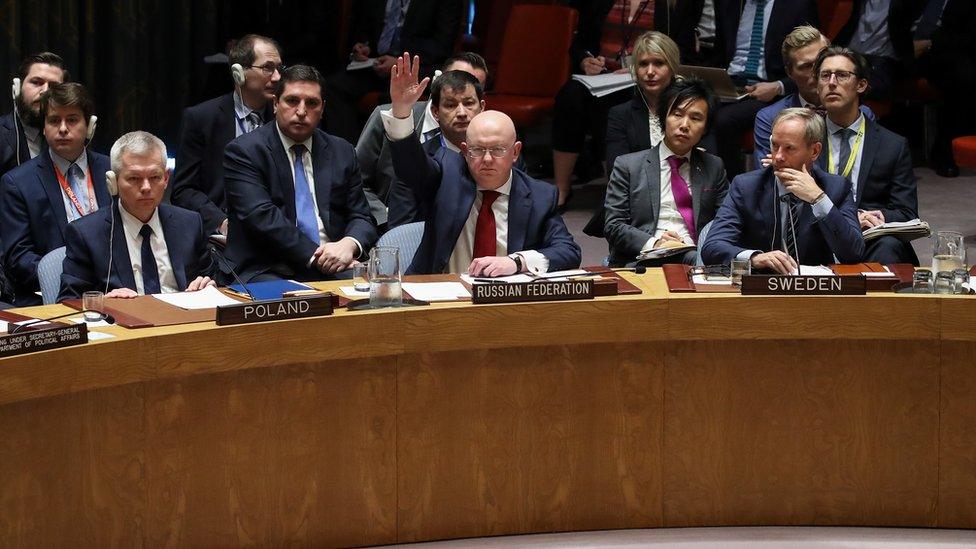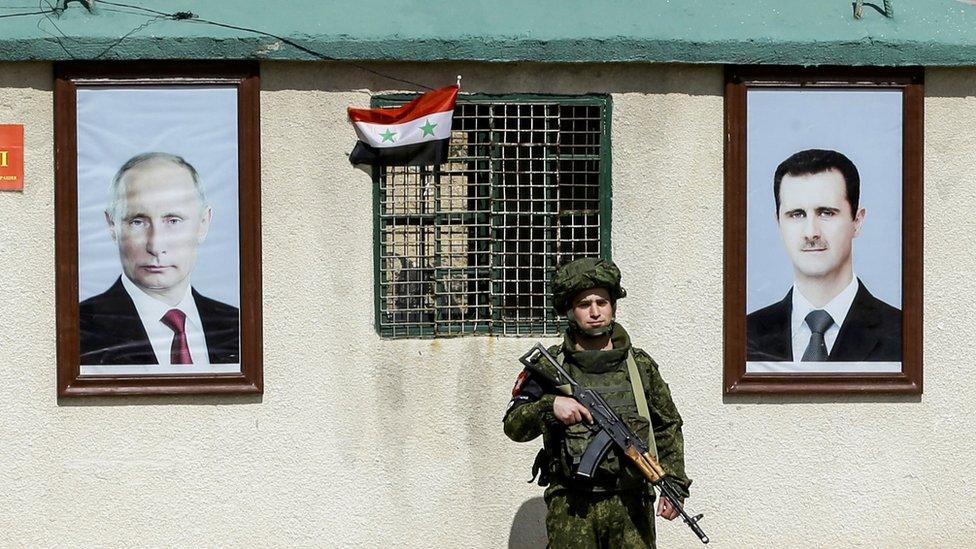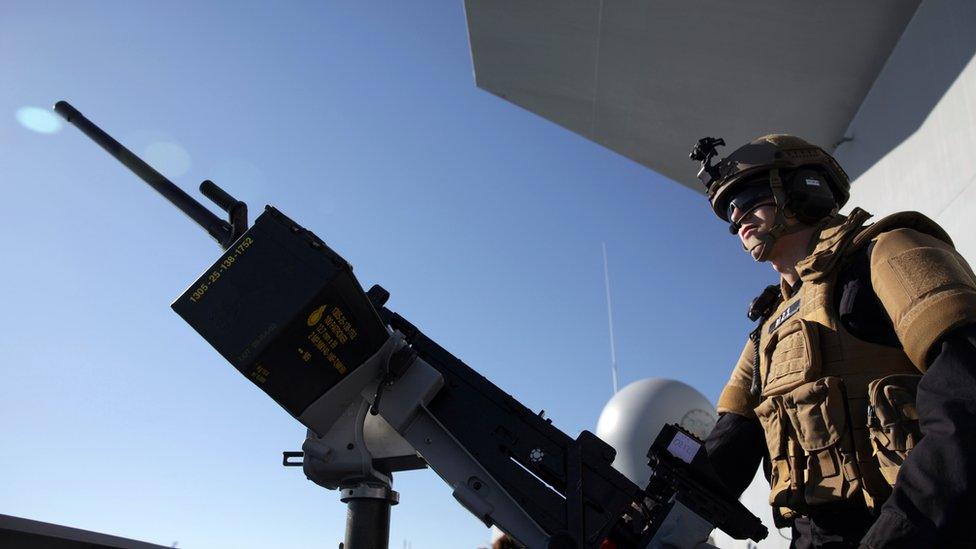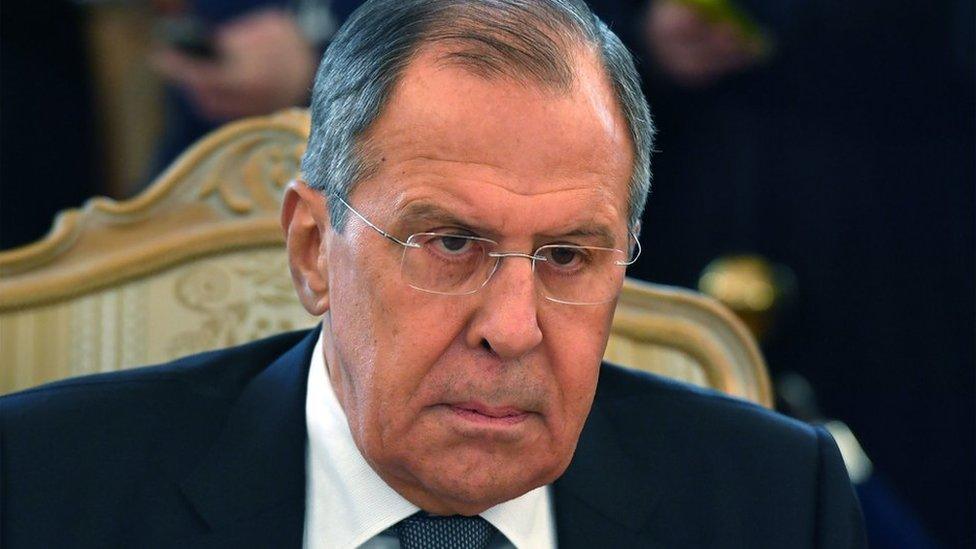Syria: Does Russia always use a veto at the UN Security Council?
- Published

Claim: Russia always uses a veto when it comes to votes about Syria at the UN.
Verdict: Russia has vetoed several UN resolutions related to the Syrian civil war. But it has supported others, including a resolution in 2013 that backed the elimination of Syria's chemical weapons.

There has been a lot of discussion about Russian vetoes at the UN Security Council.
On 10 April, Russia blocked a resolution to identify who was responsible for the alleged chemical weapons attack in Douma in Syria.
Russia, voting against the measure, said the US was misleading the international community about the attack.
Brandon Lewis, chairman of the Conservative Party, tweeted about Jeremy Corbyn saying that "he knows full well Russia veto at the UN".
But Shami Chakrabarti, the shadow attorney general, told the BBC that in the past, some resolutions on Syria had won support of all members of the Security Council, including Russia, and that had led to the destruction of chemical weapons.
So, how often does Russia veto resolutions on Syria?

The UN Security Council has five permanent members - Russia, the United Kingdom, the United States, France and China - and 10 non-permanent members.
To pass a Security Council vote, there need to be nine votes in favour and for none of the five permanent members to vote against. A veto is when there are the nine votes in favour, but one of the five uses its vote against to block the vote from passing.
Russia has used its veto 12 times regarding Syria since the conflict began in 2011 on issues including condemnation of the bombing of Aleppo and ceasefires.
And it's not the first time it has blocked a vote concerning the use of chemical weapons. Almost one year ago, Russia vetoed a UN resolution proposed by the US, UK and France that would have imposed sanctions on Syria after a reported chemical weapons attack on the rebel-held town of Khan Shaykhun.
While the US and UK have not used a formal veto, they have voted against measures proposed by Russia, such as the two raised on 10 April. These resolutions laid out a different plan to investigate the suspected attacks.
However Russia has also backed resolutions related to the civil war in Syria that have been approved by the Security Council.

The Norwegian navy took part in the international effort to transport chemical weapons out of Syria in 2014.
Most recently, in February this year, the council unanimously adopted a 30-day ceasefire. There have also been resolutions passed on ensuring the delivery of humanitarian aid.
On 27 September 2013, the UN passed a resolution that condemned the use of chemical weapons in Ghouta, around Damascus. The document supported a joint Russian-US agreement to destroy Syria's chemical weapons programme.
The formal Organisation for the Prohibition of Chemical Weapons (OPCW) plan became part of the UN resolution that followed. The UN would be the body to govern the whole process.
The OPCW reported that 581, external metric tonnes of the precursor chemical for sarin gas were destroyed. In total, 96% of the chemical weapons stockpile (that the Syrian government had declared) was removed, according to the OPCW. The complete destruction of the stockpile was reported in January 2016., external
There have been nine rounds of UN-mediated peace talks to find a political solution to the conflict. The last round ended with no breakthrough after the Syrian government said it was not willing to negotiate with the opposition. The rebels still insist President Assad must step down as part of any settlement.
Meanwhile, Western powers have accused Russia of undermining the peace talks by setting up a parallel political process.
The so-called Astana process saw Russia host a "Congress of National Dialogue" in January 2018. However, most opposition representatives refused to attend.



- Published16 April 2018
